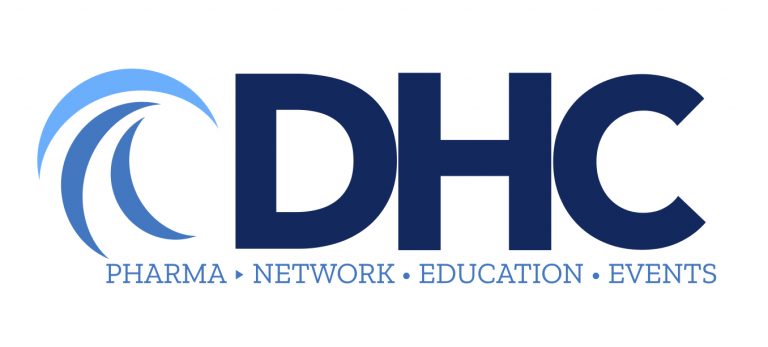Interview
A Day in the Life: Physicians in 2021
Roundtable Discussion
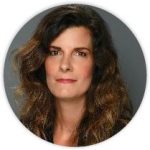
Erin Fitzgerald
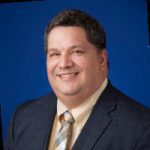
Paul Murasko
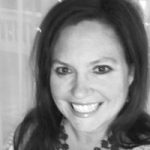
Susan Johnson
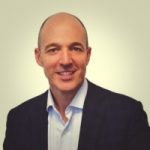
Matt Holland

Summary
A 14 minute watch. This video is a summary of a conversation between the DHC’s Founder Mark Bard, Erin Fitzgerald with Sermo, Paul Murasko with Ipsen, Susan Johnson with Outcome, and Matt Holland with Healio. The discussion focused on the life of a physician in 2021. A transcript of the video is also available below (edited for clarity).
Video Transcript
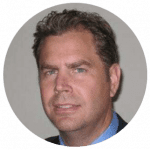
Mark Bard
Co-Founder
DHC Group
“Welcome, everyone. My name is Mark Bard with the DHC group. This roundtable today, we’re going to be discussing a day in the life of a physician in 2021. Certainly, 2020 was disruption. It was everything across the board for the average physician trying to figure out how to keep the practice afloat and then really how to think about how do you do phase reentry, how do you deal with your patients, and of course, how do you deal with the pharma industry. That’s an important part of the practice as well. What we are going to do today is have this brief discussion on a day in the life.
We’ve got some phenomenal thought leaders with us. One thing we try to do in these roundtables is to bring people with a little bit different backgrounds and experience so they can add on their point of view, and all these conversations will really build on one another. First up we’ve got Erin Fitzgerald with Sermo, Paul Murasko with Ipsen. Susan Johnson with Outcome, and then next up we’ve got Matt Holland with Healio. We’re going to start off with a big-picture question. I’m going to start with you, Erin. When we think about some of these big-picture trends, changes, whether it’s at the market, the system, the patients’ level, what do you see as the biggest that’s become part of their day to day in 2021?”

Erin Fitzgerald
Chief Marketing Officer
Sermo
“From the data that we’ve collected at Sermo, I think some of the biggest changes are the fluctuation in in-patient activity and being able to treat patients and communicate through them in different ways whether it be through email, constantly having a steady stream of communication with patients, when they can return to the office, when it’s safe and so on, but then also with the commercial healthcare ecosystem such as pharma reps and so on, their day to days have really changed on how they’re receiving information.
Many things were unusual about 2020, but we really had to maintain the rigor of clinical information-sharing while adapting to speed of frontline information that was needed. Inside the medical community, I feel like wow, we really did a good job of getting information out there at a steady clip, and I think that to the broader general population, it feels like wow, there was different news every day. I think that’s one of the biggest areas of change to physicians’ lives as well as ours in the space.”

Mark Bard
Co-Founder
DHC Group
“Paul, I’ll throw this over to you. What would you characterize as the biggest change for physicians in 2021?”

Paul Murasko
Head of Digital Customer Interaction for North America
Ipsen
“I think the biggest change is now they’re getting used to a new norm. We still don’t know what the end point of the new norm is, but 2020 changed everyone’s life, and we all talk about the many aspects of COVID, but let’s not lose sight that it was truly a disruptor, and from a digital perspective it was truly an accelerator. I think if you look at a physician’s life now in 2021, they’re still grappling with how to get the right information at the right time. How do you do it on-demand? What type of platforms, programs could we put in place so it’s when they want, where they want, and how they want?
I think that’s going to be, Mark, the biggest thing of how we are able to communicate effectively and more important add that value to the HCP and ultimately the patient in this new world because face to face, although it might be increasing in ’21, isn’t going to go back to what it was in ’19.”

Susan Johnson
SVP Customer Engagement
Outcome Health
“2021 really is the year of normalization, what the new normal looks like to use that cliché. I liken it a little bit to what happened after 9/11 in our safety and mass transit – mass travel. In the offices, we have to figure out how to still meet patient and provider needs because there’s an educational component in that point of care, moment of care that still has to exist in this new world. Virtual visits can be very successful, can give the patient and the patient caregivers opportunity to both be there. In the office setting, maybe only the patient can go in, and if you’re hearing a diagnosis that really requires someone else listening to it, we can take care outside of the four walls, but you need to take those educational components too.”

Matt Holland
Chief Commercial Officer
Healio
“How do you meet their educational needs? How do you meet their informational needs? What does that look like in 2021? I think will look a lot like it did in 2020. I think things are obviously opening up, but we still have the same challenges. The idea of telehealth is great from a diagnosis perspective, but if you’re an orthopedic surgeon, clearly getting that patient in the practice to perform a procedure, it takes a whole ‘nother set of protocols, so what we’ve adapted to from a content perspective is the virtual idea has obviously taken off.
I think going back to conferences most likely not in ’21, maybe ’22, will not be the same. I think that’s something we’ll all get used to not only because you can engage with more content but time out of office, the expense, all the other things you need to contend with. I think Paul’s point that this not only disrupted things but then accelerated them is very appropriate because I think we’re going to see a lot of that continue through the balance of this year.”

Mark Bard
Co-Founder
DHC Group
“What went away, and maybe it’s something we’re not going to miss too much? What did this kind of catalyst change that we’re saying hey, we didn’t need to do this the way we were doing it?”

Matt Holland
Chief Commercial Officer
Healio
“The historical nature of the rep relationship may not need to go back to the way it once was. I think there’s a lot of value there, but the in-person component is not as critical. That dynamic, that relationship is probably not going to go back to the way it once was, and maybe it doesn’t need to.”

Susan Johnson
SVP Customer Engagement
Outcome Health
“There is absolutely still a place for a rep both in-person and on-demand. I think it will look a little bit differently, and I think there will – you will see a greater need and respect for the type of clinical or specialized content. I think you’ll see the expansion of very specialized roles where pharma can still provide the needed support to both providers and office staff in support of the patient experience.”

Paul Murasko
Head of Digital Customer Interaction for North America
Ipsen
“The value is in how the interaction and the value-add changes, increase patient care, the delivery of that care, how to be efficient, things that were not typically feature, advantage benefit or – because I think they can get all that information online, and most of them want to get that on their schedule, and then use the rep to answer some questions.
I also think that the role of MSLs are going to probably come more prominent. Access to ORs continually got tougher even prior to COVID, but this is going to continue. I was told as a medical device rep and when I was a sales leader in medical device, if you’re not in scrubs and you’re not in OR, you’re not doing your job. Now, you’re going to have to find a way to do your job without being in scrubs and roaming the halls of the OR because that’s just not going to happen anymore.”

Erin Fitzgerald
Chief Marketing Officer
Sermo
“Physicians have a lot of their conversations online within their Sermo communities are really about time, their lack of time that they have. Some of the themes that I’ve really picked up on that we’ve been talking about is this idea of hospitality, and not just for the patient but for our entire ecosystem. We’re really seeing a modernization of the pharma and physician experience overall where it’s going to be very much a utility. I think some of the rep roles are going to become more and more specialized, and perhaps there’s even a care-type team dedicated to specific physician practices or to health systems throughout that continuum of patient care and not just up front.”

Mark Bard
Co-Founder
DHC Group
“Let me stick with you for a second, Erin. You deal with a lot of content. Do you see how physicians in terms of how – not only how fast they want the information but how they’re getting it? How is that changing, and what does that mean?”

Erin Fitzgerald
Chief Marketing Officer
Sermo
“What we’re seeing is increased demand for summaries and overviews of conferences, so virtual conferences are popular as you mentioned before with physicians, but then in a social community such as Sermo, they want a recap and highlights of the events. The rate in which information they were sharing information about how to treat patients was really accelerated as well. Then this is somewhat of a controversial topic, but you see with this rapid sharing of information potentially a democratization of what the KOL is as well.”

Matt Holland
Chief Commercial Officer
Healio
“The ability to develop and then disseminate content specifically around conferences, that’s been accelerated as well. The idea that we’ve got to go to a conference, cover the conference, report on the conference, and then disseminate that information, we could obviously do that more quickly. What we’re seeing now are brands wanting to be contextually relevant around that content as well. With respect to KOLs and career advancement piece of this, that’s obviously something of concern to a lot of our users because you’ve got gender equity issues now, and you’ve got – the whole practice situation going back to the family component, the speaking opportunities, the ability to go to conferences, the ability to raise your profile.
How does that change going forward if this environment that we’re all in continues to be the way it is, and that, I think, will be an interesting thing for industry and pharma to deal with. How do you work with that next generation of thought leaders that you’re trying to develop, and how do you give them those opportunities that may not exist the way they would a year or two ago?”

Mark Bard
Co-Founder
DHC Group
“Susan, I’m going to throw it to you. You’re in a unique position in Outcome. You have screen, devices, wallboards. You’ve got these hardware delivery systems of content and patient education. How is content changing for the end user physician and I guess patients as well through the practice? How has it changed or how do you see it changing?”

Susan Johnson
SVP Customer Engagement
Outcome Health
“The information that we need to get both to the provider and the patient and the patient family needs to be in consumable, bite-sized pieces of information, so content has to get its point across in a much faster way. Our real challenge there for all of us that have worked in pharma is the compliance piece of that. You could have a two-minute commercial that 30 seconds of it is the actual information about the commercial and the other 90 seconds of it is about all of the legalities that we need to put in there for getting the information across.”

Mark Bard
Co-Founder
DHC Group
“When you think of a physician brand plan and all these things that we’ve talked about in the day in the life and what it’s going to look like over the next 12 months, what needs to be in that brand plan?”

Susan Johnson
SVP Customer Engagement
Outcome Health
“Your brand plan looks more specialized individuals that can have these compliant conversations, find a way to make that happen. Find a way to use an NPP channel in a way that health is personal, period. Discussing health, getting information about help there, really flip that on its heel and look at it that way so that you can make those connections. “

Mark Bard
Co-Founder
DHC Group
“Paul, I’ll throw it to you. Advice for someone working on a physician brand plan for 2022?”

Paul Murasko
Head of Digital Customer Interaction for North America
Ipsen
“We really need to start looking at where we’re going to place our big bets, and that has to be around making sure content is enriched. We always hear content’s king, but I think now more than ever, we also need to make sure we truly move into the on-demand model. We’re past the point of reaching people. Now we need an engaged interaction, and let’s be honest, it’s not going to be face to face. It’s going to be some face to face in ‘22, more than now, for sure, but there’s going to be a virtual component to this that I don’t think ever goes away.“

Mark Bard
Co-Founder
DHC Group
“Matt, your thoughts to a brand team thinking about 2022.”

Matt Holland
Chief Commercial Officer
Healio
“Everything’s very targeted now. As a result, the content, the information, the format you give that content to them in has got to be engaging. You need to think broadly, but you need to think also very targeted.”

Mark Bard
Co-Founder
DHC Group
“Erin, when you think about talking to an organization, a brand team or someone in marketing about 2022, what are some of your key talking points to hey, don’t forget about?”

Erin Fitzgerald
Chief Marketing Officer
Sermo
“Meeting their customers where they are. We already have a path forward, and we see it on many different channels, whether it be the YouTubes or Instagrams or so on where you are – you’re seeing ads before you’re seeing content, and it’s done in a way that I feel like really resonates with customers and is highly targeted and is applicable for that moment or contextually relevant. I think that’s really key here, that that would be my one major, major point to convey.”

Mark Bard
Co-Founder
DHC Group
“If you’d like to connect with any of these experts, thought leaders, please go on LinkedIn and whatever channel you prefer to try and connect with people online. They’d love to reach out and talk with you. Thank you, everyone, for your time today. Goodbye.”
